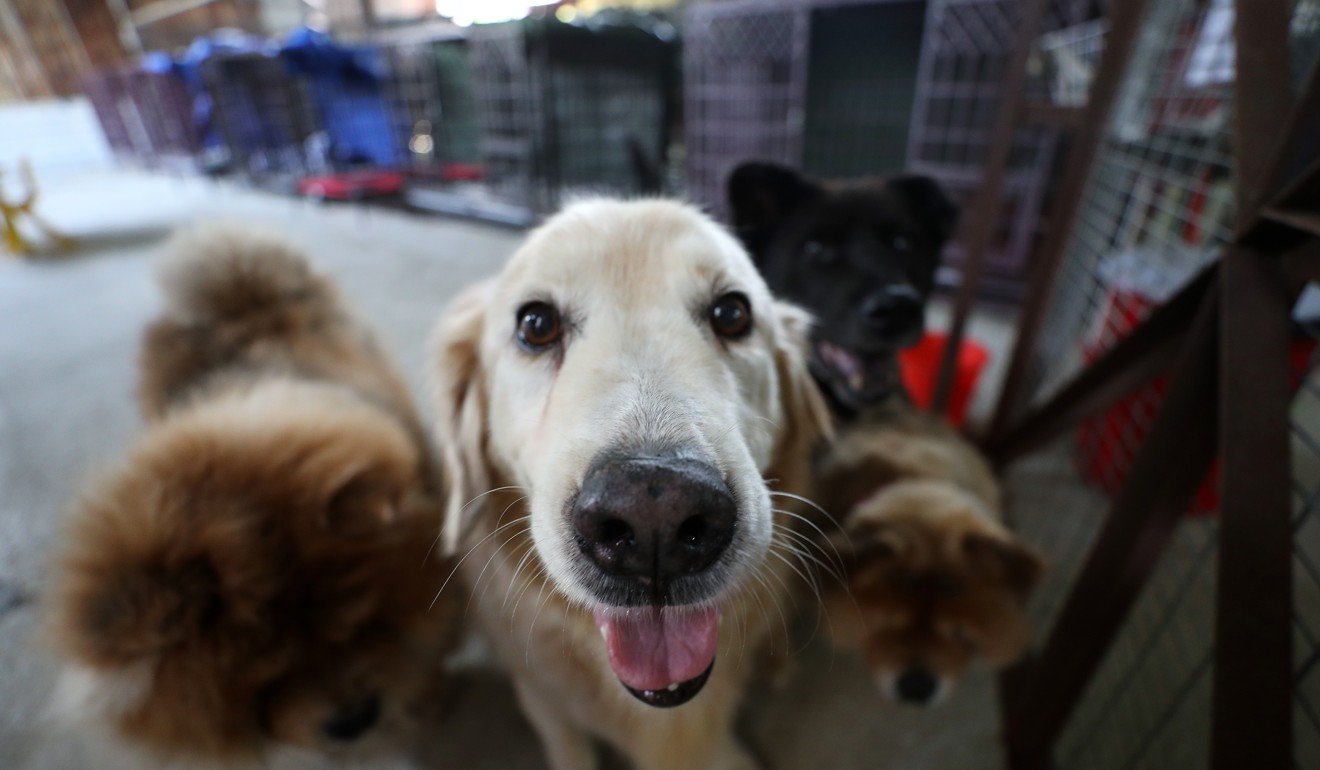When we turn a blind eye to animal cruelty or do not chastise children for such acts, we are sending a message that ours is a society that condones violence
Source: South Morning China Post
Having lived in Asia my entire life, I have seen my share of animal cruelty and have come to realise that it would be impertinent to excuse some forms of animal cruelty, just because some are more explicit than others. The fact is that every inhumane action, no matter the degree of harm inflicted, is despicable and should not be tolerated.
One of the latest viral clips shows a black dog being drowned in what appears to be a swimming pool designed for dogs to exercise in a pet shop in China.
A man is seen placing the animal in a glass tank while another person films the entire 30-second ordeal during which the dog struggles to stay afloat, but eventually succumbs and sinks to the bottom of the tank.
Like other forms of violent crimes, animal abuse cases are largely undetected, mostly because of underreporting. This is due to the blasé cultural view towards animal abuse in this part of the world.
But that is about to change, thanks to a new movement in Asia that is striving to improve awareness of animal welfare and overhaul a societal indifference towards the cruel treatment of animals, especially domesticated ones.

According to the inaugural Animal Friendly Cities Index Report, some of the top dog-friendly cities are New Taipei City and Kyoto, thanks to comprehensive legislation that favours animals. New Taipei City has a zero-kill policy for stray dogs and pets are welcome in many public spaces, including public parks and most restaurants.
The notion of launching the index, according to Genlin Peng Hong-ling, founder of World Dog Alliance, is not merely about grading cities based on their animal-friendly behaviour, it is also about spreading the good practice of animal care globally.
The Animal Friendly Cities Index should also raise another salient point; we should all start to recognise the connections between animal cruelty and domestic violence.
Numerous studies have shown that acts of cruelty to animals are not merely indications of misbehaviour or a personality defect in the abuser, but are also symptomatic of a deeper hidden mental disturbance or disorder in the individual.

Various other studies have also demonstrated that those who commit acts of cruelty to animals do not stop there. Many abusers tend to escalate their aggression and begin abusing people. With this in mind, torturing animals should raise a red flag that an abuser could potentially pose a danger to society as a whole.
Various other studies have also demonstrated that those who commit acts of cruelty to animals do not stop there
Through public awareness, schools, parents, and communities should be more responsible and responsive in reacting to such abuse cases. When we see an act of animal cruelty, either in person or on social media, we must act immediately rather than stand idly by; turning a blind eye to cruelty makes one complicit in such cruel acts whether we like it or not.
Some courts have begun to notice the severity of animal abuse and recognise that such behaviour can lead to other violent crimes, so they have taken steps to aggressively penalise offenders.
In March 2006, Maine Governor John Baldacci signed a law – the first of its kind in the US – that allows judges to include animal companions in court-issued protection orders against domestic abusers. This means that abusing pets is now considered a form of domestic violence.
Other US states such as Vermont, New York, California, and Colorado have also followed suit and people who harm animals in violation of a court order can face fines and jail time.
Hong Kong and mainland China would do well to follow New Taipei City and Kyoto’s examples. This means that they should also crack down on pet shops, impose harsher punishments for animal abandonment, implement stricter rules on sterilisation, as well as setting up initiatives to educate owners on animal welfare, and promote animal-friendly public spaces and facilities.
Early intervention is just as important as education and punishment. When children are allowed to engage in animal torture without being punished, or in the absence of appropriate intervention such as re-education and psychological counselling, they can grow up to become abusers to other people or worse, turn into sociopaths.

Having lived in Asia my entire life, I have seen my share of animal cruelty and have come to realise that it would be impertinent to excuse some forms of animal cruelty, just because some are more explicit than others. The fact is that every inhumane action, no matter the degree of harm inflicted, is despicable and should not be tolerated.
One of the latest viral clips shows a black dog being drowned in what appears to be a swimming pool designed for dogs to exercise in a pet shop in China.
A man is seen placing the animal in a glass tank while another person films the entire 30-second ordeal during which the dog struggles to stay afloat, but eventually succumbs and sinks to the bottom of the tank.
Are Hong Kong’s laws on animal abuse and neglect outdated?4 Feb 2018
Like other forms of violent crimes, animal abuse cases are largely undetected, mostly because of underreporting. This is due to the blasé cultural view towards animal abuse in this part of the world.
But that is about to change, thanks to a new movement in Asia that is striving to improve awareness of animal welfare and overhaul a societal indifference towards the cruel treatment of animals, especially domesticated ones.

In total some 30 million dogs are slaughtered every year in countries including China, Vietnam, Thailand, Cambodia and Japan. Photo: World Dog Alliance
According to the inaugural Animal Friendly Cities Index Report, some of the top dog-friendly cities are New Taipei City and Kyoto, thanks to comprehensive legislation that favours animals. New Taipei City has a zero-kill policy for stray dogs and pets are welcome in many public spaces, including public parks and most restaurants.
The notion of launching the index, according to Genlin Peng Hong-ling, founder of World Dog Alliance, is not merely about grading cities based on their animal-friendly behaviour, it is also about spreading the good practice of animal care globally.
The Animal Friendly Cities Index should also raise another salient point; we should all start to recognise the connections between animal cruelty and domestic violence.
Numerous studies have shown that acts of cruelty to animals are not merely indications of misbehaviour or a personality defect in the abuser, but are also symptomatic of a deeper hidden mental disturbance or disorder in the individual.

Some courts in other countries have realised the severity of animal abuse and enacted laws that protect pets against violence the same way humans are covered. Photo: Winson Wong
Various other studies have also demonstrated that those who commit acts of cruelty to animals do not stop there. Many abusers tend to escalate their aggression and begin abusing people. With this in mind, torturing animals should raise a red flag that an abuser could potentially pose a danger to society as a whole.
Various other studies have also demonstrated that those who commit acts of cruelty to animals do not stop there
Through public awareness, schools, parents, and communities should be more responsible and responsive in reacting to such abuse cases. When we see an act of animal cruelty, either in person or on social media, we must act immediately rather than stand idly by; turning a blind eye to cruelty makes one complicit in such cruel acts whether we like it or not.
Some courts have begun to notice the severity of animal abuse and recognise that such behaviour can lead to other violent crimes, so they have taken steps to aggressively penalise offenders.
In March 2006, Maine Governor John Baldacci signed a law – the first of its kind in the US – that allows judges to include animal companions in court-issued protection orders against domestic abusers. This means that abusing pets is now considered a form of domestic violence.https://widgets.scmp.com/video/video_iframe.php?id=6c7y0e&poster=https%3A//cdn3.i-scmp.com/sites/default/files/video/images/2018/07/03/birds_web_text.jpg
Other US states such as Vermont, New York, California, and Colorado have also followed suit and people who harm animals in violation of a court order can face fines and jail time.
Hong Kong and mainland China would do well to follow New Taipei City and Kyoto’s examples. This means that they should also crack down on pet shops, impose harsher punishments for animal abandonment, implement stricter rules on sterilisation, as well as setting up initiatives to educate owners on animal welfare, and promote animal-friendly public spaces and facilities.
Early intervention is just as important as education and punishment. When children are allowed to engage in animal torture without being punished, or in the absence of appropriate intervention such as re-education and psychological counselling, they can grow up to become abusers to other people or worse, turn into sociopaths.

Children should be taught at an early age to respect and love animals.
When youngsters are allowed to carry on with their abusive conduct, the message we are feeding them is that we are living in a culture that condones violence. Do we really want to see that in our seemingly civilised society?
The kind of people we are is reflected in the kind of children we bring up and the kind of a home we build for ourselves and our children. If we live in a society that tolerates violence in any capacity, then that speaks volumes about us.
Let’s make the choice to not turn the other cheek towards those who are indifferent to violence or worst of all, perpetrators of violence. Change starts with ourselves.

